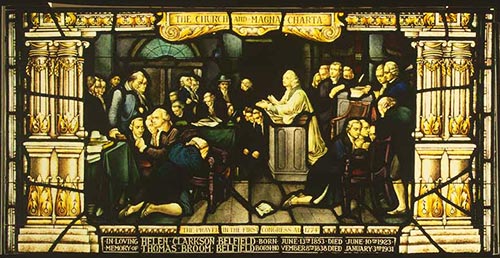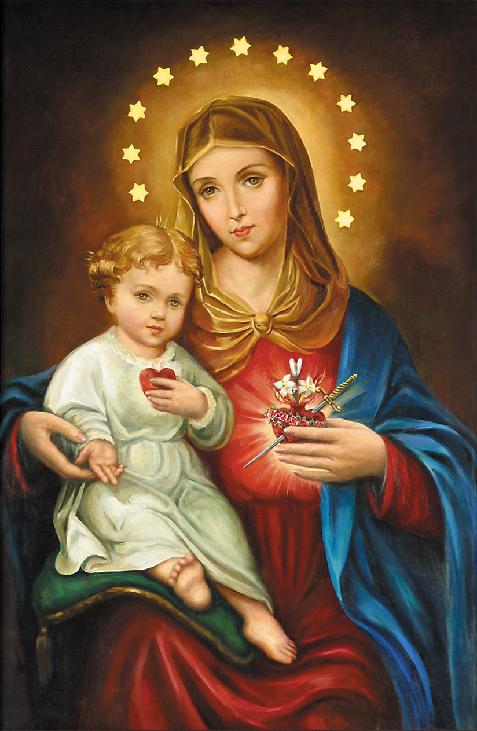Even the Protestants said no.
Initially, Thomas Cushing, one of the delegates and Founding Fathers of the United States of America, suggested that an inter-religious prayer be said together before the inaugural session of the Continental Congress on 6 September 1774 at Carpenters' Hall in Philadelphia.

The Prayer in the First Congress
However, John Jay of New York and John Rutledge from South Carolina raised their objection. A certain John Adams later wrote to his wife, Abigail, explaining that the opening prayer was practically impossible "because we were so divided in religious sentiments" and thus "we could not join in the same act of worship".
Many of the Founding Fathers gathered at the Congress are clearly from different Protestant sects, including Episcopalians, Congregationalists, Presbyterians, just to name a few.
Even the Protestants from the different brands and branches of Protestantism do not recognise themselves as a collective group of Christians, as a united 'Body of Christ', as the universal Church of God. They see the differences in doctrines and beliefs, and henceforth conclude that they cannot, in good conscience, pray and worship together. Doesn't this tell us something?
(Sadly), the Modernists' idea of religious liberty set in, as noted by the same John Adams, that a certain "Mr S Adams arose and said he was no bigot, and could hear a prayer from a gentleman of piety and virtue who was at the same time a friend to his country". In the end, "the motion was seconded and passed in affirmative".
Modernism is not a modern concept at all. Be reminded that this took place in 1774.
(Sadly), the Modernists' idea of religious liberty set in, as noted by the same John Adams, that a certain "Mr S Adams arose and said he was no bigot, and could hear a prayer from a gentleman of piety and virtue who was at the same time a friend to his country". In the end, "the motion was seconded and passed in affirmative".
Modernism is not a modern concept at all. Be reminded that this took place in 1774.



.jpg)
No comments:
Post a Comment